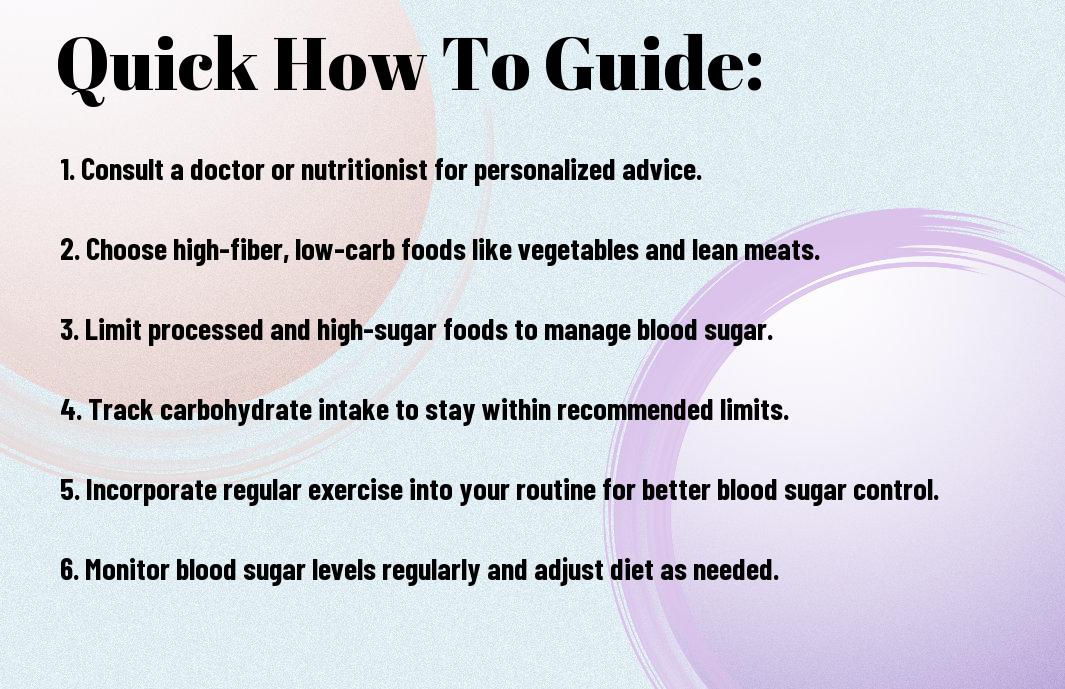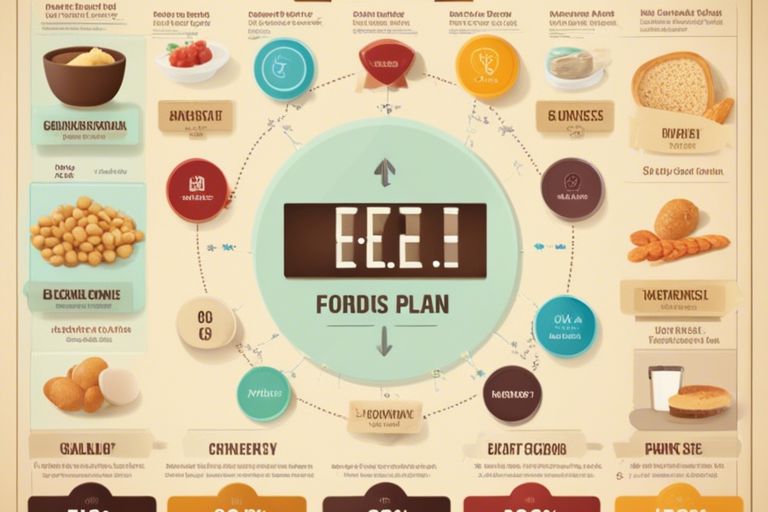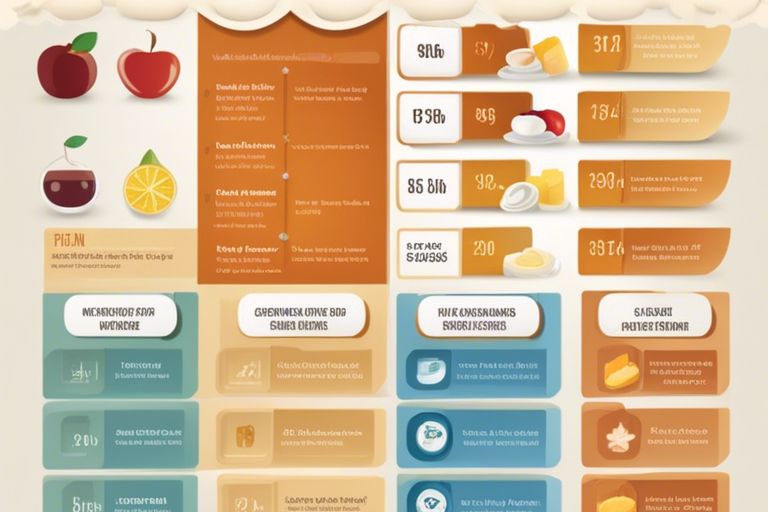Envisaging a successful low carb diet plan for diabetics requires careful consideration and meticulous planning. With the right knowledge and guidance, individuals with diabetes can effectively manage their condition through a well-structured low carb diet. In this comprehensive guide, we will explore the essential steps and strategies for creating an effective low carb diet plan tailored specifically for diabetics. For a detailed 7-day low carb meal plan for diabetics, check out this 7-Day Diabetic Meal Plan: Tasty, Low-Carb Options from Business Insider to jumpstart your journey towards better health and wellness.

Factors to Consider Before Starting a Low Carb Diet
The decision to start a low carb diet is not one to be taken lightly. There are several factors that need to be carefully considered before embarking on this journey. The individual’s health status, medical history, as well as their nutritional needs and dietary restrictions all play a crucial role in determining the effectiveness and safety of a low carb diet for diabetics. It is important to thoroughly evaluate these factors to ensure that the diet plan is tailored to the specific needs of the individual.
- Health status and medical history
- Nutritional needs and dietary restrictions
- Individual goals and lifestyle
These factors will ultimately influence the success of the low carb diet and its ability to effectively manage diabetes in the long term. Therefore, a comprehensive assessment is essential before making any dietary changes.
Health: Individual Health Status and Medical History
Health should be the primary concern when considering a low carb diet for diabetics. Before starting the diet, it is imperative to take into account the individual’s current health status and medical history. Factors such as existing medical conditions, medications, and previous dietary habits need to be carefully evaluated to determine the suitability of a low carb diet.
Furthermore, consulting with a healthcare professional, such as a certified diabetes educator or a registered dietitian, is highly recommended to assess the potential risks and benefits of the diet based on the individual’s health profile. It is important to address any concerns or complications that may arise from implementing a low carb diet to ensure the safety and efficacy of the dietary plan.
History: Nutritional Needs and Dietary Restrictions
History of nutritional needs and dietary restrictions should be thoroughly reviewed before implementing a low carb diet for diabetics. Understanding the individual’s nutritional requirements, including macronutrient intake and specific dietary restrictions, is crucial in developing a well-balanced and sustainable low carb diet plan.
Plus, considering any food allergies, intolerances, or cultural dietary preferences is essential in creating a dietary approach that is both manageable and enjoyable for the individual. Moreover, accounting for any previous dietary interventions or weight management programs can provide valuable insight into the individual’s past experiences with dietary changes and their potential impact on diabetes management.

How to Create Your Low Carb Diet Plan
Assuming you have decided to adopt a low carb diet to manage your diabetes, creating a tailored plan that meets your specific needs is crucial for success. Designing a low carb diet plan involves several key steps, including assessing your daily carbohydrate needs, selecting low carb foods for a balanced diet, planning your meals and snacks, and integrating physical activity into your routine.
Assessing Your Daily Carbohydrate Needs
Assessing your daily carbohydrate needs is the first step in creating an effective low carb diet plan for diabetes. Start by consulting with a registered dietitian or healthcare provider to determine your individual carbohydrate requirements based on factors such as age, activity level, weight, and blood sugar control. Monitoring your blood sugar levels throughout the day can also provide valuable insight into how different amounts of carbohydrates impact your body.
Selecting Low Carb Foods for a Balanced Diet
Carbohydrate selection is critical for maintaining a balanced low carb diet for diabetes. Focus on incorporating nutrient-dense, low carb foods such as non-starchy vegetables, lean proteins, healthy fats, and high-fiber grains to provide essential nutrients while managing blood sugar levels. Selecting foods with a low glycemic index can also help prevent rapid spikes in blood sugar.
Selecting low carb foods for a balanced diet involves avoiding high sugar and processed foods, while prioritizing whole, unprocessed options. Shopping the perimeter of the grocery store for fresh produce, lean meats, and dairy products can help you make healthier choices.
Planning Your Meals and Snacks
Foods planning your meals and snacks in advance is essential for staying on track with your low carb diet plan. Incorporate a variety of low carb foods into your meals to ensure you receive a balanced intake of nutrients while managing your diabetes. Experiment with different recipes and meal prep techniques to keep your meals interesting and enjoyable.
Your meal plan should include a combination of protein, healthy fats, and fiber-rich carbohydrates to help balance blood sugar levels and keep you feeling satisfied throughout the day. Be mindful of portion sizes and aim for consistency in your meal timing to promote stable blood sugar control.
Integrating Physical Activity into Your Routine
An active lifestyle is a fundamental component of a successful low carb diet plan for diabetes. Regular physical activity can help improve insulin sensitivity, aid in weight management, and support overall cardiovascular health. Incorporating a mix of aerobic exercise, strength training, and flexibility exercises into your routine can provide comprehensive benefits for diabetes management.
Diet regular physical activity into your routine can enhance the effectiveness of your low carb diet plan and contribute to better blood sugar control, increased energy levels, and improved overall well-being.
Tips for Sticking to Your Low Carb Diet
Your low carb diet plan can be highly effective in managing diabetes, but sticking to it can be a challenge at times. Here are some tips to help you stay on track:
- Prepare your meals in advance to avoid impulsive food choices.
- Stock your kitchen with low carb snacks to curb cravings.
- Stay hydrated and drink plenty of water throughout the day.
- Find low carb recipes and meal ideas to keep your menu exciting.
Perceiving the benefits of a low carb diet and its impact on your diabetes management can be a motivating factor to stick to the plan. For more low carb dieting tips and recipes for diabetics, you can visit Low Carb Dieting Tips & Recipes for Diabetics – Atkins.
Monitoring Blood Sugar Levels Regularly
Sticking to your low carb diet plan requires monitoring your blood sugar levels regularly to understand the impact of your dietary choices. This will help you make informed decisions and adjustments to optimize your diabetes management.
Consistently checking your blood sugar levels will also provide valuable feedback on the effectiveness of your low carb diet plan in stabilizing your blood glucose levels.
Managing Cravings and Avoiding Common Pitfalls
One of the challenges of sticking to a low carb diet is managing cravings and avoiding common pitfalls such as indulging in high carb foods. It’s important to identify healthier alternatives and strategies to satisfy cravings without compromising your dietary goals.
This may involve finding low carb substitutes for your favorite high carb foods, and practicing mindful eating to prevent impulsive choices.
This proactive approach can help you stay committed to your low carb diet and prevent setbacks in managing your diabetes. Incorporating regular physical activity and addressing emotional triggers for cravings can also contribute to long-term success in sticking to your low carb diet.
Seeking Support from Healthcare Professionals and Peers
To maintain your motivation and commitment to your low carb diet plan, seeking support from healthcare professionals and peers can be invaluable. Regular consultations with your healthcare team can provide guidance and reassurance in managing your diabetes through a low carb diet.
Additionally, connecting with peers who are also following a low carb diet for diabetes can offer a sense of community and shared experiences, making it easier to stay dedicated to your dietary goals.
The insights and encouragement from healthcare professionals and peers can help you navigate challenges, celebrate successes, and stay focused on the long-term benefits of your low carb diet in managing diabetes.
Summing up
So, creating an effective low carb diet plan for diabetics is crucial for managing blood sugar levels and improving overall health. By focusing on nutrient-dense, low glycemic index foods, and carefully monitoring carbohydrate intake, diabetics can make significant strides in controlling their condition. It’s important to consult with a healthcare professional to tailor a plan that meets individual needs and to regularly monitor blood sugar levels to ensure the plan is working effectively. By taking a proactive approach and making informed dietary choices, diabetics can effectively manage their condition and improve their quality of life.

